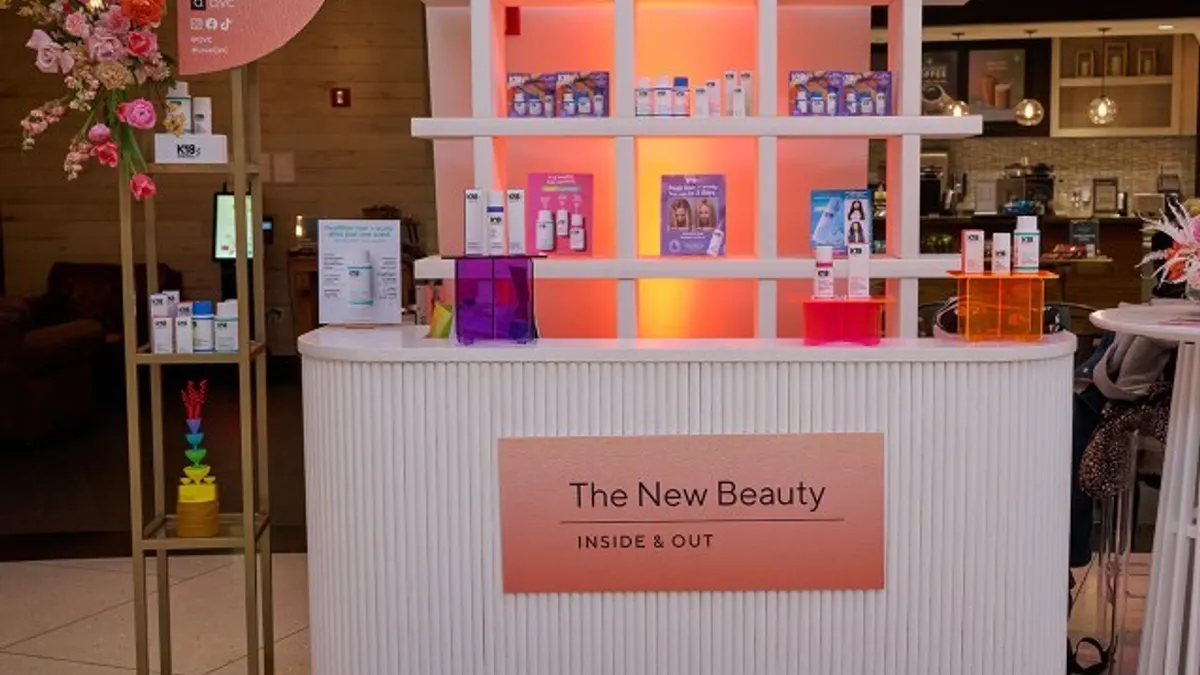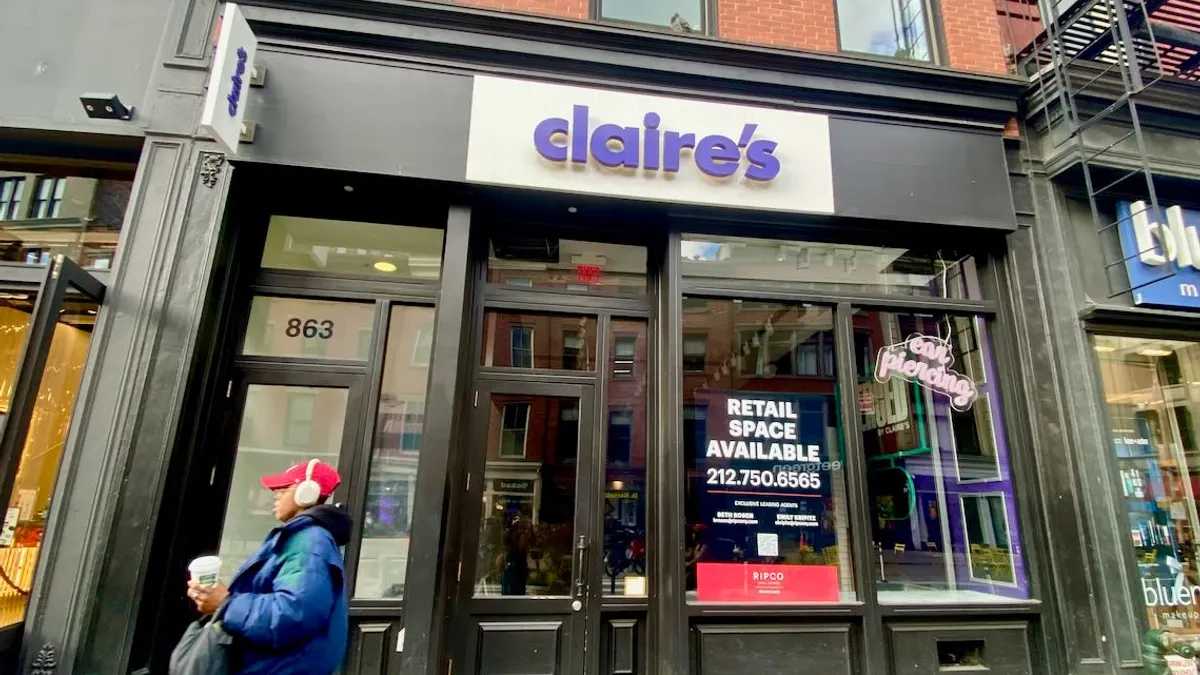There's perhaps never been an easier time to launch a digitally native brand. Venture capital money is fueling e-commerce consumer brands in nearly every category, from beauty and apparel to footwear and mattresses. And social media is making it even easier for companies to cut through the noise and foster a direct relationship with consumers.
Vertical integration, nimble supply chains and promises of free and fast delivery are all also helping boost the reputations of lifestyle brands like Casper, Glossier and Away among shoppers seeking convenience and authenticity. Many traditional retailers are also looking to these types of young brands to inject new life into their businesses and reach young, urban customers. Walmart, for example, snapped up digitally native pioneer Bonobos, as well as Eloquii, Modcloth and others. Target reportedly tried to buy Casper for $1 billion but invested instead. And mattress stalwart Serta Simmons snatched up e-tailer Tuft & Needle in August.
While these brands started online, nearly all are expanding their physical presence in one way or another. Over the next five years, former online pure-players are anticipated to built out 850 brick-and-mortar stores, according to commercial real estate firm JLL.
There are many lessons — and some pitfalls — to be gleaned from these digitally native brands. Here are 10 to watch.
1. Away
In less than three years, Away Founders Jen Rubio and Steph Korey (who both started their careers at Warby Parker) have built a lifestyle brand with lofty goals that push beyond product into tangential areas like hospitality for growth. In the future, think Away skincare, hotels and even airlines, Rubio told Retail Dive in an interview earlier this year.
Fueled by $81 million in VC funding, the luggage brand rapidly scaled its digital and physical presence. As the company moves beyond its Instagram-savvy millennial core customer, stores have been important marketing tools. Away, which has sold over 500,000 suitcases since launch, has five stores in major metro U.S. markets and one in London. This summer the company hit another milestone when it declared profitability. A collection with NBA star Dwayne Wade has also helped boost the brand's notoriety. The next step for Away is to move beyond its perception as a millennial favorite and prove itself as a true category disruptor.
2. Casper
Over the last four years, Casper has become a major force in the competitive mattress space. The company, born as a pure-play e-tailer, last year partnered with Target to bring its products in stores while experimenting with pop-up stores of its own. Anonymous sources claim Target thought about acquiring the startup for $1 billion, Recode reported last year. With the backing of $240 million in total VC funding, the company has doubled down on physical locations. In February, Casper built its first permanent store. Shortly after, the company unveiled plans to build out a store fleet of 200 by 2021.
These highly experiential stores are far from the mattress store of the past. A concept store in New York, for example, charges $25 for a 45-minute nap. Casper's bed-in-a-box model — also deployed by startups like Tuft & Needle, Purple and Leesa — offers a 100-night guarantee and the convenience of online shopping. The company's focus has stayed primarily in the U.S., but it has also been making moves into Canada, partnering with Hudson's Bay and Indigo Books and Music. The brand is facing a bright future, but constant innovation is what its executives say will ensure its category leadership.
3. Universal Standard
Three-year-old women's apparel brand Universal Standard has challenged the fashion industry to move beyond its traditionally small size scale with one of the largest size ranges any brand has ever offered, between 00 and 40. The company, founded by fashion journalist Alex Waldman and private equity veteran Polina Veksler, hit a pivotal milestone this summer when it rolled out a collaboration with J. Crew and heralded the moment the apparel icon expanded all of its sizes up to 24 across all merchandise. Universal Standard has also partnered with department store Nordstrom on several collections, and most recently with Gwyneth Paltrow's Goop lifestyle brand on a five-piece collection.
As of March, the digitally native brand has raked in $9.93 million in VC and angel funding from investors like Paltrow to support efforts to expand merchandise and open its first longer-term pop-up store in New York's SoHo neighborhood. The store, which has an 11-month lease, operates as a retail store and a fitshop, where women can receive one-on-one expertise from a stylist. While the company enjoys a healthy and engaged social media following, a physical presence will become increasingly important to scaling the brand, the founders told Retail Dive.
4. M.Gemi
Italian luxury footwear brand M.Gemi is the brainchild of serial entrepreneur Ben Fischman, e-commerce veteran Cheryl Kaplan and footwear expert (and brand namesake) Maria Gangemi. The brand, founded in 2015, has built its success on a few unique characteristics: an emotional brand story, small batch Italian manufacturing adjusted according to data and a direct relationship with customers.
With roughly $50 million in venture capital funding, the company has, among other investments, built three permanent fitshops for customers to browse, try on and place orders to be delivered. The startup has notably stirred brand loyalty and customer engagement with limited Monday drops featuring new shoes. It's also challenging the luxury space with more accessible price points and the convenience of free and fast shipping and returns.
5. Allbirds
Trendy, Instagrammable footwear brand Allbirds has quickly become a millennial favorite with a core product that aims to be the "comfiest" shoes, which are made of natural materials like merino wool, eucalyptus tree fiber and sugar cane. The three-year-old San Francisco-based brand was co-founded by Tim Brown and Joey Zwillinger.
Allbirds has raised a total of $77.45 million in VC funding to date, including a recent $50 million in a Series C round. That now crosses it into unicorn territory, according to The Wall Street Journal, which reported the company is now valued at $1.4 billion, according to sources familiar with the matter. The footwear brand has invested heavily in digital and physical growth. Pop-up shops aside, the company now has two permanent stores — one in SoHo and the other in San Francisco. Its latest round of funding is slated to fuel plans to debut new stores in the U.S., U.K. and Asia.
6. Glossier
Four-year-old Glossier has swiftly shaken up the beauty market with a model that hinges on fostering community and interaction among its social media savvy shoppers. Last year, LinkedIn named it the fastest growing startup of 2017 among a list of private companies 10 years or younger with at least 100 employees. (It recorded an annual employee growth rate for the company of 257%.) In the age of Amazon, CEO and founder Emily Weiss said at an industry conference earlier this year that the brand is insulated by its focus on customer connection.
For the most part, the brand has remained largely digital. In 2016, Glossier opened its first permanent showroom in SoHo. A second physical location was added in Los Angeles's Melrose neighborhood in April. Earlier this year, the brand also raked in $52 million in a series c funding round. By some estimates, that brings its total funding to $86 million. Pitchbook, however, pegs that number at $92.4 million. Most of that new money will be funneled into improving the customer experience, the company has said.
7. Everlane
Founded in 2011 by Michael Preysman and Jesse Farmer, apparel brand Everlane cropped up around the same time that the first wave of digitally native disruptors like Warby Parker and Bonobos began to build up steam with direct-to-consumer models built on convenience. At the brand's core has always been a commitment to a transparent supply chain.
Just two years after launch, the company's executives told The New York Times they would never consider opening a brick-and-mortar store. Yet, after several experiments with pop-up shops the company plotted two permanent 3,000 square foot stores in SoHo and San Francisco's Mission District last year. The company has raised money several times, starting with $100,000 of angel investment in 2013. Since then, Everlane has also raised $33.5 million, according to Pitchbook.
8. Outdoor Voices
Athleisure brand Outdoor Voices was founded in 2013 by CEO Tyler Haney to compete with Lululemon and attract shoppers who want to be active without necessarily identifying as serious athletes. The company has built a healthy following on Instagram even as it expands into the physical world.
Backed by nearly $57 million in venture capital funding, Outdoor Voices has quickly expanded to eight locations and is slated to open three more by the end of the year. In March, the company announced a fresh $34 million in Series C funding, including $9 million from a previous convertible investment to bring former J. Crew CEO Mickey Drexler onto the athleisure start-up's board of directors as chairman.
9. Adore Me
As category stalwart Victoria's Secret sputters, it's making way for disruption from online intimates brands like Adore Me. Founded in 2011 by founder and CEO Morgan Hermand-Waiche, Adore Me rose in popularity with a direct-to-consumer model that focused on more comfortable styles for younger women. While the company offers one-time purchases, it also operates a monthly subscription service.
As it scales, Adore Me will make a massive push into the brick-and-mortar space with 200 to 300 stores slated to open in the next five years. The first of seven to 10 stores are slated to open this year in New York City. Adore Me debuted its first store outside of New York on Nov. 21 in Bridgewater Commons mall in New Jersey. The brand is also making a push into Canada with TV spots and targeted social media ads aiming to arouse consumer interest. The brand is just one of several — including ThirdLove and Harper Wilde — disrupting the intimates market. The company is backed by a total of $53.5 million in VC funding, according to Pitchbook.
10. AYR
Women's apparel startup AYR (which stands for All Year Round) has grown dramatically since its incubation days with Bonobos founder Andy Dunn. Led by co-founder and CEO Maggie Winter, the brand is now four years into its mission to provide seasonless and comfortable professional apparel.
As the brand looks to scale, it's doing so in a way that's pushing the boundaries on inclusivity and sustainability, Winter told Retail Dive in an interview, adding that the company decided to take a financial hit in order to produce jeans in a way that only uses a cup of water. The company now has two locations, one in New York City's SoHo neighborhood and the other in Venice just outside of Los Angeles. Looking ahead, the brand aims to expand to more stores in an effort to tap into a larger market. The company is backed by $5.5 million in angel investments, according to Pitchbook.





















